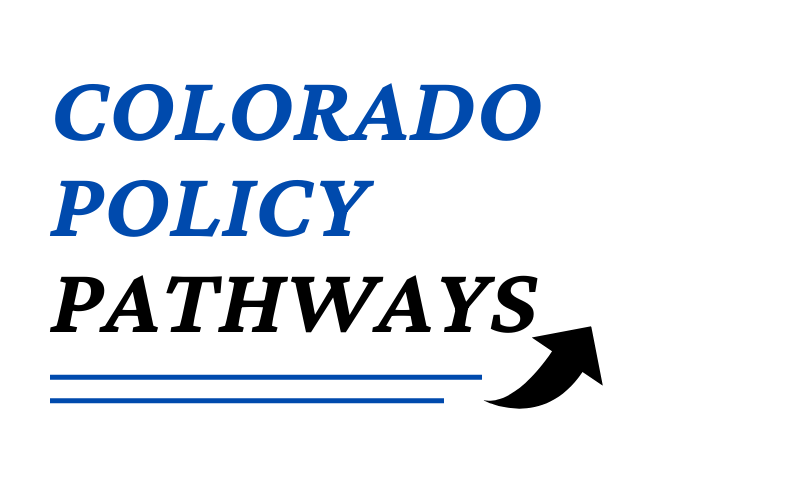Colorado voters recently passed a government-run employee benefit, paid family and medical leave. It is being celebrated as a giant step forward for workers. It is a giant step. But it is not at all a certain step forward. Many recognize that the comprehensive terms of the law and the checkered history of existing paid leave programs suggest a rough road ahead.
The policy has layers of details – hazardous and problematic terms – that make it tick. As a universal mandate, it leaves no room for error or non-conformity. It captures all private-sector employees, state employees, and businesses.
As political leaders turn to other concerns, there remain multiple questions left unanswered about this new commitment. The policy introduces changes on an underappreciated scale. As the process moves onto the backstage and rulemaking, it is worth keeping an eye on how and why a policy on this scale passed with so little scrutiny. How did a policy that is such a bad fit for our diverse businesses – but especially our small independent businesses – gain the trust of voters?
Menacing unknowns, compounded by the scope of the policy’s reach, makes the impending execution of the new law feel like a blind, 30 mph curve taken at 60. This leaves an even more critical question: what could this ambitious policy mean for Colorado and its continued prosperity?
The new law’s interference with daily operations threatens business sustainability.
Among the most controversial features of the law are terms that impact the daily operations of diverse businesses across the state.
The right to leave guaranteed by the law often referred to as job protection, has far-reaching consequences. A rarely discussed feature of the policy, and one that is least understood by those who crafted the proposal, it leaves small independent businesses most vulnerable. It is a glaring barrier to the policy’s success.
In the interest of being an all-in-one solution for workers, the State will enforce a guaranteed at-will employee leave of absence for an eligible caregiving event. The benefits and terms of this law are broad and generous.
It is meant to promote financial and job security. It works by providing a wage subsidy, and it relies on the force of law to prevent any interruption in a worker’s job or career position at that firm and those working relationships. Lost in this scheme/thinking is the unmeasurable effects the terms have on interpersonal relationships and decision-making.
Can small businesses make it work?
The policy is designed to relieve workers but shifts those risks to employers
To ensure the readily exercised right to leave for all workers, the policy shifts risks and uncertainties from employees to employers. The law authorizes qualifying paid leave absences and constrains options left to employers. They lose discretion and agility to manage their staffing and operations. This puts tremendous pressure on the business’s ability and capacity to serve customers.
The response from the advocates who have designed this government model is that employers will find ways to cover the workload of the absent worker. Other workers will take on extra work, the firm will establish a pool of ready replacements, or it will hire a temporary worker.
This is absurdly oversimplified. It reveals a yawning gap in understanding the challenges and perspectives of employers. Further, businesses are concerned about growing dysfunction and incompatibility. The operating assumption of the policy, which is highly controversial, is that the use of the benefit will be moderate. These programs are still in their infancy. Once established, they will continue to grow and will not be easily moderated or reversed.
A bad fit for small business – yet again.
Small businesses, which employ half of the state’s employed workforce, are no strangers to ill-fitting labor laws inspired and imposed by activists who are unfamiliar with their daily challenges. The tight formula is a mandate imposed on all businesses. Too often, these laws are crafted with large, mature businesses in mind.
Further, they are crafted with only today and yesterday in mind. Once the framework is set, a government policy on this scale rarely adapts as conditions change. This is at odds with the adaptable approaches of businesses and today’s rapidly evolving economy. Business survival depends on constantly looking toward the future.
Ambitious policymakers have imposed a grand comprehensive policy that sounds good in theory, but that will not work as expected in practice. It essentially authorizes the Department of Labor to manage the firms’ staffing under a broad number of defined conditions and assumes that the business’s ability to serve customers will be unaffected – as if staffing is an isolated or disjoint function of operations.
Small is different. Employees and customers appreciate those differences. Policies like paid leave, in a drive for uniformity, threaten to quash them.
Earlier paid leave laws recognized the fragile nature of small businesses and that they might need a lifeline. They might need to resort to filling that vacant position If they are unable to withstand the hardship of being short-staffed for 3 to 4 months.
The new Colorado law deprives even the smallest of businesses, any business with at least one employee, of this lifeline.
This law holds over their heads the threat of penalty or lawsuit for a range of violations. They must not mishandle the leave. They must not interfere with the decision to take a leave. They must properly reinstate the employee. And they must not act in any way that suggests discrimination or retaliation. The threat of complaint or litigation has a broad window that extends that vigilance for up to 2 or sometimes 3 years beyond any violation.
This is intimidating. The fear of becoming ensnared in labor laws for mismanaging the treatment of employees in various circumstances has far-reaching consequences. It will send a chill through the workplace, adding to the growing sense that employers must be guarded and aware of every letter in the swelling intricate labor codes.
The New Paid Leave Law sets up small businesses for failure
For the job creators like small businesses, who add diversity to job markets, the spreading impact of intimidating labor laws and complex, micromanaging rules deprives them of the agility they require to thrive in competitive environments. This new law, like a growing number of others, is not only unwieldy but is antithetical to entrepreneurship. Breakthrough innovation needs room to break a few rules, try new approaches. These come consistently from risk-taking individuals in small, agile, companies.
It seems difficult to imagine that the courage and will to face the ever-present risks of entrepreneurship can endure these consistent blows from indifferent, disengaged policymakers.
The clear message to small business owners is “You’ll figure it out.”
How did we get here?
With the passage of Prop 118, Colorado has become the latest victim of either/or thinking
A ballot initiative encourages either/or thinking. Not supporting Prop 118 did not mean “do nothing.” It meant that this particular proposal is wrong for Colorado. It poses too much risk.
As a yes/no option, the ballot proposal approach routed the concerns of businesses.
Seven years of broader, earnest conversation included the detailed pleas of businesses across the state. This measure goes farther than most. Running this measure as a ballot initiative when businesses were scrambling to address COVID and government policy challenges was a bold move. It demonstrated unyielding confidence in the face of what is unknown and what proponents do not fully understand. It is a disappointment to businesses of all sizes across the state that it garnered such unwavering support from Democratic leaders.
Nearly every state-level Democratic officeholder in Colorado publicly endorsed the terms of Prop 118. The only holdouts were our Governor, the Secretary of State, and one Democrat Representative from the Colorado House.
The concept of paid family leave has so much power in the public’s imagination. The needs addressed are deeply felt. This makes it easier to garner trust with simplified messaging. The ability to deliberate the layers of complexity is lost. Many lawmakers had previously voiced concerns about the very terms included in this version. Yet the support of the opportune and heavily funded Prop 118 suggests that many were willing to dismiss the risks it poses.

This list of endorsements was published by Colorado Families First, the Colorado Division of what is a nation-wide advocacy organization. They pursue a number of progressive policies that rely heavily on government solutions to family needs.
This law broadcasts a disconcerting message.
Paid Leave is one of the more prominent among a growing number of new sweeping policies demonstrating that government policy risk in Colorado is rising.
The rapid succession of one controversial law after another suggests a lack of care or restraint. This will repel growth and opportunity, not attract it.
What’s of more concern is that a broader signal has been sent far beyond Colorado’s borders. Business and investment communities are taking note. Colorado’s economic success and welcoming business climate risk being overshadowed by unyielding progressive and labor interests.
Voters need to hold progressive policymakers accountable. They seem determined to continue their aggressive path. Bad policy compounds. We need to stand back and recognize the concentrating levels of risks that take time to be seen and felt.
Consequences from the large-scale intervention of paid leave will not emerge today. The victory celebrated by proponents is likely a short-term win. Everyone looks good at the starting line.
But make no mistake, decision-making in every venue, large and small, is re-ordering risks and priorities as they await with trepidation the unfolding of the policy’s implementation. Pages and pages of complex and confusing rules and guidance from the government are sure to follow.



 Paid Leave – a Closer Look at Solvency and Sustainability
Paid Leave – a Closer Look at Solvency and Sustainability